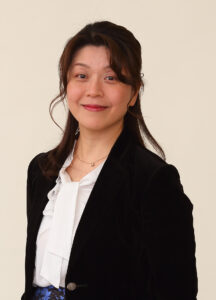NAKAYA Ayami
Professor
- Doctor of Philosophy in Education, Hiroshima University
- anakaya[a]hiroshima-u.ac.jp
*Please replace [a] with @ when sending e-mail.
Major Professional Backgrounds
- Japan Society for the Promotion of Science, Special Postdoctoral Researcher (1997-2001)
- Hiroshima University, Lecturer (2001-2004)
- Hiroshima University, Associate Professor (2005-2007)
- Hiroshima University, Associate Professor (2007-2010)
- Hiroshima University, International Center, Associate Professor (2010-2016)
- Hiroshima University, Graduate School for International Development and Cooperation, Associate Professor (2016-2020)
Please refer to the following link for more research achievements. Ayami Nakaya (hiroshima-u.ac.jp)
Research Areas and Themes
My research interests are Peace Education, Global Citizenship Education, Local Curriculum Development, and Education in Indonesia.
In the area of peace education research, I am studying curricula related to peacebuilding in various countries and examining the history of education, curricula, teaching materials, and classes in the region as research on peace education in post-conflict areas. Local Curriculum Research is a critical study of the educational and social functions of locally developed curricula. For example, I seek to examine the effectiveness of locally developed curricula in addressing the peace challenges (violence) faced by the region and interpret the educational phenomenon of how region-specific curricula aim at identity formation. I also study international human resource development, the influence of international education, and the relationships between regional development, local identity, and global citizenship in education. I am conducting research on these topics, especially in Indonesia and Japan.
The themes of the papers I have written over the past five years include are as follows:
- Multicultural education to overcome ethnic conflict in Indonesia
- The social function of Chinese affiliated universities in Indonesia
- Out-of-school children and support in Indonesia
- High school students and their parents’ perceptions toward international education (baccalaureate) in Japan and Indonesia
- Global/ national/ local citizenship education in Japan and Indonesia
- Service learning in Indonesia
- Global competency development in Japanese high schools
- Accelerate and enrichment education in Indonesia
Research Areas and Themes of the Students
I can supervise you if your research is similar to my research themes. The educational stage of the research can be supervised from elementary schools to universities.
The main research topics of the supervising students are as follows:
-
Education to Promote Health Risk Cognition and Behavioral Change against the Pollution: Focus on the Analysis of Curriculum and Textbooks in Indonesia
-
Characteristics and Challenges of Multicultural Education in Bolivia – Focus on Teacher Awareness –
-
Research toward Better Educational System for Muslim Students in Japan -Ethnography at Elementary school in Higashi-Hiroshima City –
-
International Education (IE) at High School Level in Indonesia: Globalization, Nationalization and Individualization
-
Non-Formal Education Equivalency Programme in Cambodia: An Analysis of implementation and Outcomes in Phnom Penh and Pursat Province
Message to Prospective Students
When you see the term “international educational development,” you may think that we study education in foreign or developing countries, but in my laboratory, there are many students pursuing research education in Japan. This is because the globalization of education is a challenge for all countries. Of course, there are also many students who study education in developing countries. They are studying how to guarantee and improve the quality of education for those who cannot afford it. For example, they investigate non-formal education, multicultural education, human rights education, pollution education, and their policies, systems, curricula, and teaching methods. If you are interested in improving education to make the world more peaceful, let us study and research together.

